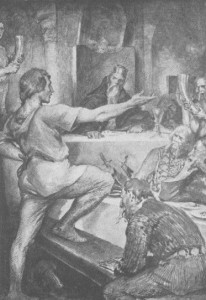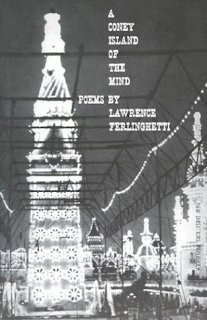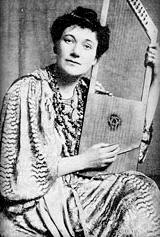scop (skop) — n
(in Anglo-Saxon England) a bard or minstrel
an Anglo-Saxon minstrel, usually attached to a particular royal court, although scops also traveled to various courts to recite their poetry. In addition to being an entertainer who composed and performed his own works, the scop served as a kind of historian and preserver of the oral tradition […]. Encyclopedia Britannica, 2008.
 Back in the days before printed books, when the live reading was the primary means of getting literature to the public, storytellers appreciated the connection between music and narrative. They knew that delivering a story was more than just reciting words, but today that seems to have been forgotten.
Back in the days before printed books, when the live reading was the primary means of getting literature to the public, storytellers appreciated the connection between music and narrative. They knew that delivering a story was more than just reciting words, but today that seems to have been forgotten.
Have you attended a reading lately? Did the author bring a backup band? Keyboard? Boombox? Probably not. It’s easier to just bring a book.
I remember Lawrence Ferlinghetti at a performance sponsored by the now defunct (and sorely missed) International Poetry Forum. It was April 3, 1968, and Ferlinghetti was reading from his collection A Coney Island of the Mind.
I was young and  impressionable, studying the performance, learning from the master. For an hour it was just Ferlinghetti and his voice, but then, for his final piece, he produced a tape player, adjusted the podium microphone so that it hung midway between his face and the machine. I remember the pose. He held it like a harp, for a moment recalling a classic pose of Florence Farr. Then he hit play.
impressionable, studying the performance, learning from the master. For an hour it was just Ferlinghetti and his voice, but then, for his final piece, he produced a tape player, adjusted the podium microphone so that it hung midway between his face and the machine. I remember the pose. He held it like a harp, for a moment recalling a classic pose of Florence Farr. Then he hit play.
And then – in the tradition of the Anglo-Saxon scop – he read “Moscow in the Wilderness, Segovia in the Snow” while guitar music played beneath his words.
I n the years that followed, I heard others do the same. Most notably Patti Smith, who gave spoken word performances accompanied by guitarist Lenny Kaye in the early 70s, and four-time Bram Stoker Award winner Michael A. Arnzen, who released AudioVile, a CD featuring some of his stories read to original music, in 2007. But live meldings of music and spoken word remain relatively rare, even though modern technology makes it easier than ever to bring quality sound to a reading. Indeed, full multi-media accompaniment – laptop, PA, projector, and screen – can fit easily into the backseat of a Cobalt.
n the years that followed, I heard others do the same. Most notably Patti Smith, who gave spoken word performances accompanied by guitarist Lenny Kaye in the early 70s, and four-time Bram Stoker Award winner Michael A. Arnzen, who released AudioVile, a CD featuring some of his stories read to original music, in 2007. But live meldings of music and spoken word remain relatively rare, even though modern technology makes it easier than ever to bring quality sound to a reading. Indeed, full multi-media accompaniment – laptop, PA, projector, and screen – can fit easily into the backseat of a Cobalt.

In 2008, as Fantasist Enterprises was preparing to debut my novel Veins at GenCon, I began working on a studio CD of music inspired by the novel. Part of the impetus for the project was a CD that Poe had produced based on Mark Z. Danielewski’s novel House of Leaves. But also in the back of my mind was that long ago performance by Lawrence Ferlinghetti. If all went well, I figured the new music might enable me to score live readings from the book.
The resulting CD, Veins: the Soundtrack, was released by Fantasist in 2009, and that summer I took music and book on the road, giving readings at the International Conference of the Fantastic in the Arts, Confluence, GenCon, Context , and PAISTA, a gathering of educators at the Kiski School in western Pennsylvania.
Naturally, writers needn’t produce original CDs in order to score their readings. There’s a lot of music out there. More than ever before. And the technology needed to arrange and edit a playlist is probably already on the computer you are using to read this blog.
With 21st-Century Scop, I’d like to talk about bringing live readings back to their roots and employing new forms of media. There’s a lot to consider as we move headlong into the future. Let’s follow the road together, see where it leads.



Leave a Reply